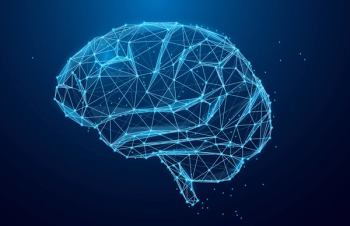
Psychedelics Research Roundup: November 17, 2023
What is new in research on psychedelics?
In this Research Roundup, we explore new studies on psychedelics as treatments for Alzheimer disease and posttraumatic stress disorder, as well as the psychological and physiological effects of a novel method of DMT administration.
Exploring the Potential of Psychedelic Drugs as Novel Therapies for Alzheimer Disease and Related Depression
This review discusses the potential use of psychedelic drugs such as psilocybin, LSD, mescaline, DMT, and ketamine as alternative treatments for Alzheimer disease (AD) and AD-related depression. The investigators focus on the impact of these drugs on neurotransmission systems, particularly serotonin and dopamine, and their potential to address cognitive decline and psychiatric symptoms associated with AD.
The review also touches on the concept of microdosing as a method to administer psychedelics with potential benefits for depression, anxiety, focus, and sociability. However, the investigators also emphasize the need for further research to refine therapeutic methods and dosages to avoid adverse consequences, especially for patients with AD.
Reference
Pilozzi A, Foster S, Mischoulon D, et al.
MDMA-Assisted Psychotherapy for PTSD and its Effects on Memory
This article provides an overview of the current state of research on the use of MDMA in conjunction with psychotherapy for the treatment of posttraumatic stress disorder (PTSD). The investigators discuss the mechanisms underlying the treatment form and the potential implications of this research for the future of PTSD treatment, stating that the growing evidence for memory effects mediating treatment efficacy in MDMA-assisted psychotherapy for PTSD could lead to the development of more effective and targeted treatments for PTSD.
“Future research is needed to uncover the effects of MDMA on memory and how these effects could mediate the treatment efficacy of MDMA-assisted psychotherapy,” the investigators concluded. “Further, the biological underpinnings and the pharmacological profile of MDMA mediating these potential mnemonic effects remain to be elucidated.”
Reference
Sarmanlu M, Kuypers KPC, Vizeli P, Kvamme TL.
Exploring the Safety and Efficacy of Extended DMT Experience
In this placebo-controlled study, investigators explored a novel method of administering N,N-Dimethyltryptamine (DMT) involving a bolus injection paired with a constant-rate infusion to extend the psychedelic experience over 30 minutes. Utilizing pharmacokinetic parameters from a previous bolus intravenous DMT study, 4 dose regimens were tested in 11 healthy volunteers. The results suggest that this continuous intravenous DMT administration method is effective in maintaining a stable and tolerable psychedelic experience, demonstrating safety and effectiveness for potential use in basic and clinical research on consciousness and mental health conditions.
“This study lays the groundwork for further explorations with extended IV infusions of DMT,” the investigators concluded. “The extended DMT experience may be valuable to explore further the phenomenology, neurobiology, and clinical outcomes associated with this unique state of consciousness.”
Reference
Luan LX, Eckernäs E, Ashton M, et al.
Note: This Research Roundup was prepared with the assistance of ChatGPT and ChatPDF.
Let us hear from you! Want to share your insights with colleagues on the latest research on psychedelics, dementia, and other psychiatric disorders, treatments, and issues? Write to us at PTEditor@mmhgroup.com.
Newsletter
Receive trusted psychiatric news, expert analysis, and clinical insights — subscribe today to support your practice and your patients.







